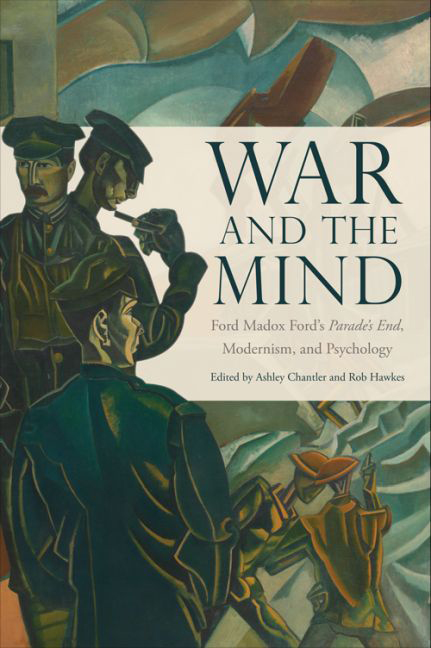Book contents
- Frontmatter
- Contents
- Acknowledgements
- Introduction
- 1 ‘Sex ferocity’ and ‘the sadic lusts of certain novelists’: Sexuality, Sadomasochism, and Suppression in Parade's End
- 2 Freud Madox Ford: Impressionism, Psychoanalytic Trauma Theory, and Ford's Wartime Writing
- 3 Empathy, Trauma, and the Space of War in Parade's End
- 4 Fellow Feeling in Ford's Last Post: Modernist Empathy and the Eighteenth-Century Man
- 5 The Self-Analysis of Christopher Tietjens
- 6 Composing the War and the Mind; Composing Parade's End
- 7 The Work of Sleep: Insomnia and Discipline in Ford and Sassoon
- 8 Representing Shell Shock: A Return to Ford and Rebecca West
- 9 ‘I hate soldiering’: Ford, May Sinclair, and War Heroism
- 10 Peace of Mind in Parade's End
- Notes on Contributors
- Bibliography
- Index
1 - ‘Sex ferocity’ and ‘the sadic lusts of certain novelists’: Sexuality, Sadomasochism, and Suppression in Parade's End
Published online by Cambridge University Press: 15 September 2017
- Frontmatter
- Contents
- Acknowledgements
- Introduction
- 1 ‘Sex ferocity’ and ‘the sadic lusts of certain novelists’: Sexuality, Sadomasochism, and Suppression in Parade's End
- 2 Freud Madox Ford: Impressionism, Psychoanalytic Trauma Theory, and Ford's Wartime Writing
- 3 Empathy, Trauma, and the Space of War in Parade's End
- 4 Fellow Feeling in Ford's Last Post: Modernist Empathy and the Eighteenth-Century Man
- 5 The Self-Analysis of Christopher Tietjens
- 6 Composing the War and the Mind; Composing Parade's End
- 7 The Work of Sleep: Insomnia and Discipline in Ford and Sassoon
- 8 Representing Shell Shock: A Return to Ford and Rebecca West
- 9 ‘I hate soldiering’: Ford, May Sinclair, and War Heroism
- 10 Peace of Mind in Parade's End
- Notes on Contributors
- Bibliography
- Index
Summary
J'ai seul la clef de cette parade sauvage.
Arthur RimbaudWhat would it mean to take seriously Graham Greene's claim that Ford's Tietjens books (along with The Good Soldier) are ‘almost the only adult novels dealing with the sexual life that have been written in English’? What is it that he thought ‘adult’ about Ford's rendering of the sexual life? And why ‘almost’? What comparable works might he have had in mind? The comment appeared in 1950, in the promotional pamphlet put together by Knopf when publishing Parade's End together for the first time in one volume. Greene's own novel that might be said to be his most adult dealing with the sexual life, The End of the Affair – and which (as Greene himself acknowledged) would have been virtually inconceivable without Ford's The Good Soldier – was published the following year. Does that mean he had his own writing in mind?
Whichever specific novel or novels Greene may have meant, his point was that there weren't many of them. As a judgement on English fiction of the early twentieth century, this is curious. What about all those works David Trotter termed ‘Edwardian Sex Novels’, written by figures such H. G. Wells or his friend and Ford's lover Violet Hunt? Or by Ford's friend and discovery, D. H. Lawrence, who carried on writing more adult and more explicit sex novels long after the Edwardian period. Don't The Rainbow, Women in Love, and Lady Chatterley's Lover deserve to be described as ‘adult’ works? Or Joyce's Ulysses? And what about the later generation of writers like Henry Miller or Christopher Isherwood? Perhaps Greene didn't think they were ‘adult’ either. Even thinking in terms of Ford's oeuvre, it doesn't make much sense to claim Parade's End as exceptional in its emphasis on sexuality.
- Type
- Chapter
- Information
- War and the MindFord Madox Ford's Parade's End, Modernism, and Psychology, pp. 17 - 34Publisher: Edinburgh University PressPrint publication year: 2015

